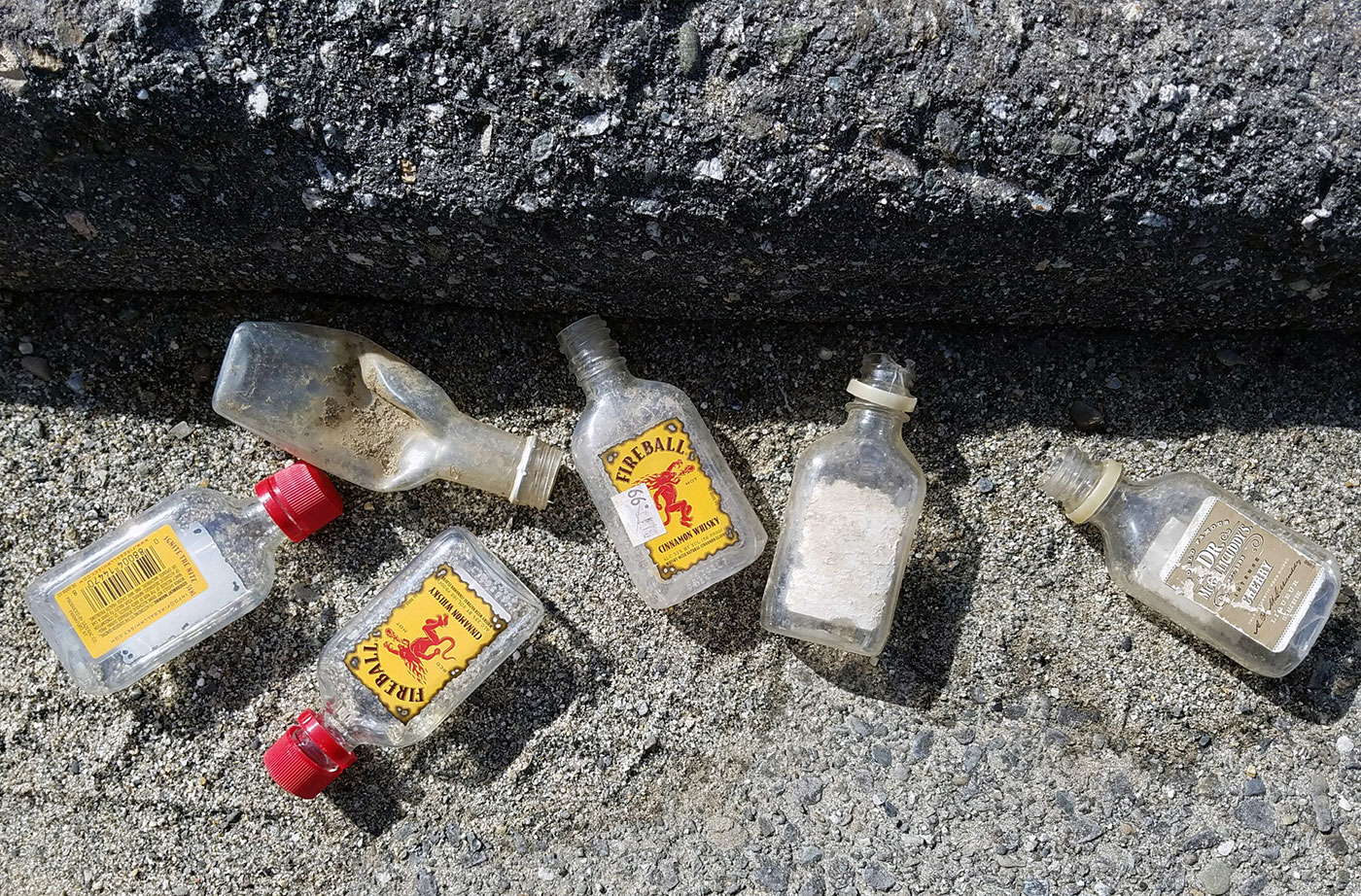In 1976, Maine Senator Edmund Muskie mobilized a staunch anti-littering sentiment that resulted in the passage of Maine’s biggest recycling success story, the Bottle Bill. Fast forward some four decades later and the bill is reaching new heights. In 2017, the House and Senate voted to override Governor LePage’s veto of a bill requiring a five-cent deposit on small liquor bottles—known widely as “nips”—to be added to the Bottle Bill. Roadside litter is Read More
Recycling and Product Stewardship
Maine has long championed Extended Producer Responsibility (EPR) or "product stewardship" laws because they have proven effective at saving taxpayers money, reducing waste, and protecting our environment. Traditional recycling programs are run and funded by municipal governments. EPR programs shift the costs of dealing with difficult and dangerous items to the corporations and manufacturers who make and sell their products in Maine.
NRCM Statement on Strong Bipartisan Vote to Add “Nips” Liquor Bottles to Maine’s Bottle Bill
Statement of Sarah Nichols, Sustainable Maine Director, Natural Resources Council of Maine “NRCM applauds Maine lawmakers for taking a strong, bipartisan stance against roadside litter and in support of Maine’s Bottle Bill by adding ‘nips’ to the redemption program. Today the Maine Senate voted to support adding nips to Maine’s Bottle Bill by a vote Read More
House Overrides LePage’s Veto of “Nips” Bottle-deposit Bill
If the Senate also agrees to override, the governor says he’ll end sales of the popular miniature bottles of liquor that often end up as litter. by Kevin Miller, staff writer Portland Press Herald news story AUGUSTA — House lawmakers voted Tuesday to override Gov. Paul LePage’s veto of a bill that would impose a Read More
As Promised, LePage Vetoes Bill to Impose Nickel Deposit on “Nips” Bottles
Now it’s up to the Legislature to decide on a veto override vote, which could lead LePage to simply ban the sale of the small liquor bottles in Maine. by Kevin Miller, staff writer Portland Press Herald news story AUGUSTA — Gov. Paul LePage followed through on his pledge to veto a bill to impose Read More
LePage Vetoes Deposit Bill for Nips
By Steve Collins, Sun Journal AUGUSTA, Maine — Gov. Paul LePage vetoed a measure to require a deposit for the tiny liquor bottles known as nips. In his veto message, the governor complained about the cost of the proposal but also offered an alternative way to address the littering problem created by the increasingly popular Read More
In Gov. LePage’s View, No One Has Right Answers but Him
His resistance to a legislative deal on ‘nips’ deposits is just the latest in a long list of policy stances shaped by his gripes and prejudices. Portland Press Herald editorial It should have been a story about how government and industry came together to quietly solve a problem through compromise. Instead, it became another example Read More
Lewiston Liquor Bottler Warns Ending “Nips” Sales Would Have “Drastic Impact” on Company
A letter from the Sazerac Co. CEO suggests Gov. LePage’s threat to end sales of 50-milliliter bottles – not a proposed 5-cent bottle deposit – would harm his company and the state. by Kevin Miller, staff writer Portland Press Herald news story AUGUSTA – The head of a Lewiston liquor bottler withdrew his support for Read More
LePage Threatens to Veto Deposit on “Nips,” Remove Them from Maine Stores
The governor responds to a bill, likely headed for his desk, that would add the miniature liquor bottles to the state’s bottle deposit bill to reduce littering. by Kevin Miller, staff writer Portland Press Herald news story AUGUSTA — Gov. Paul LePage vowed Tuesday to veto a bipartisan bill that would impose a 5-cent deposit Read More
Bill to Add Bottle Deposit to “Nips” Advances
The legislation to charge a refundable 5-cent deposit on miniature liquor bottles is aimed at reducing roadside litter. By Kevin Miller, Staff Writer Portland Press Herald news story AUGUSTA — A bill that would impose a 5-cent deposit on the miniature liquor bottles known as “nips” advanced in the Legislature on Tuesday. Touted as a Read More










